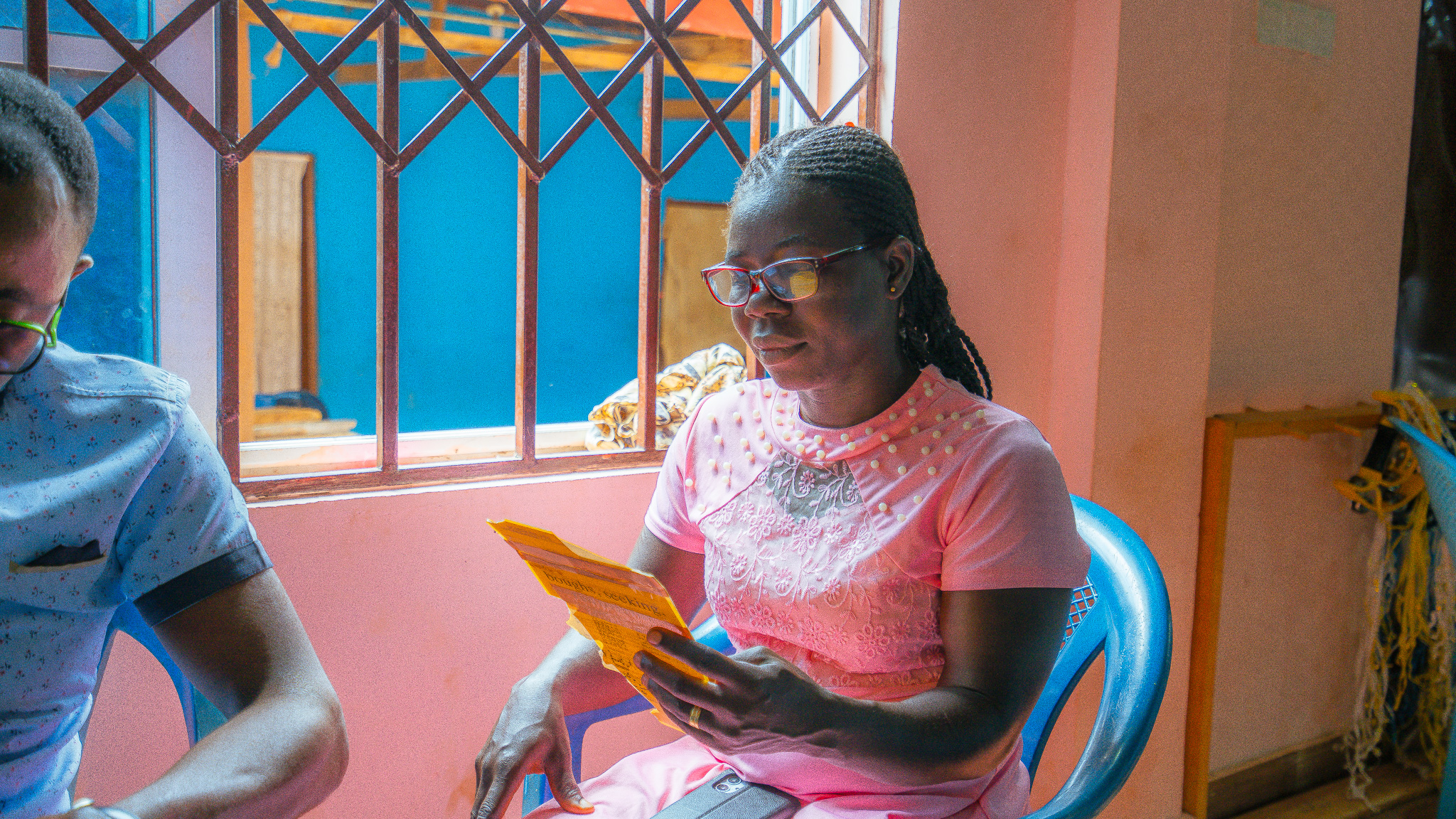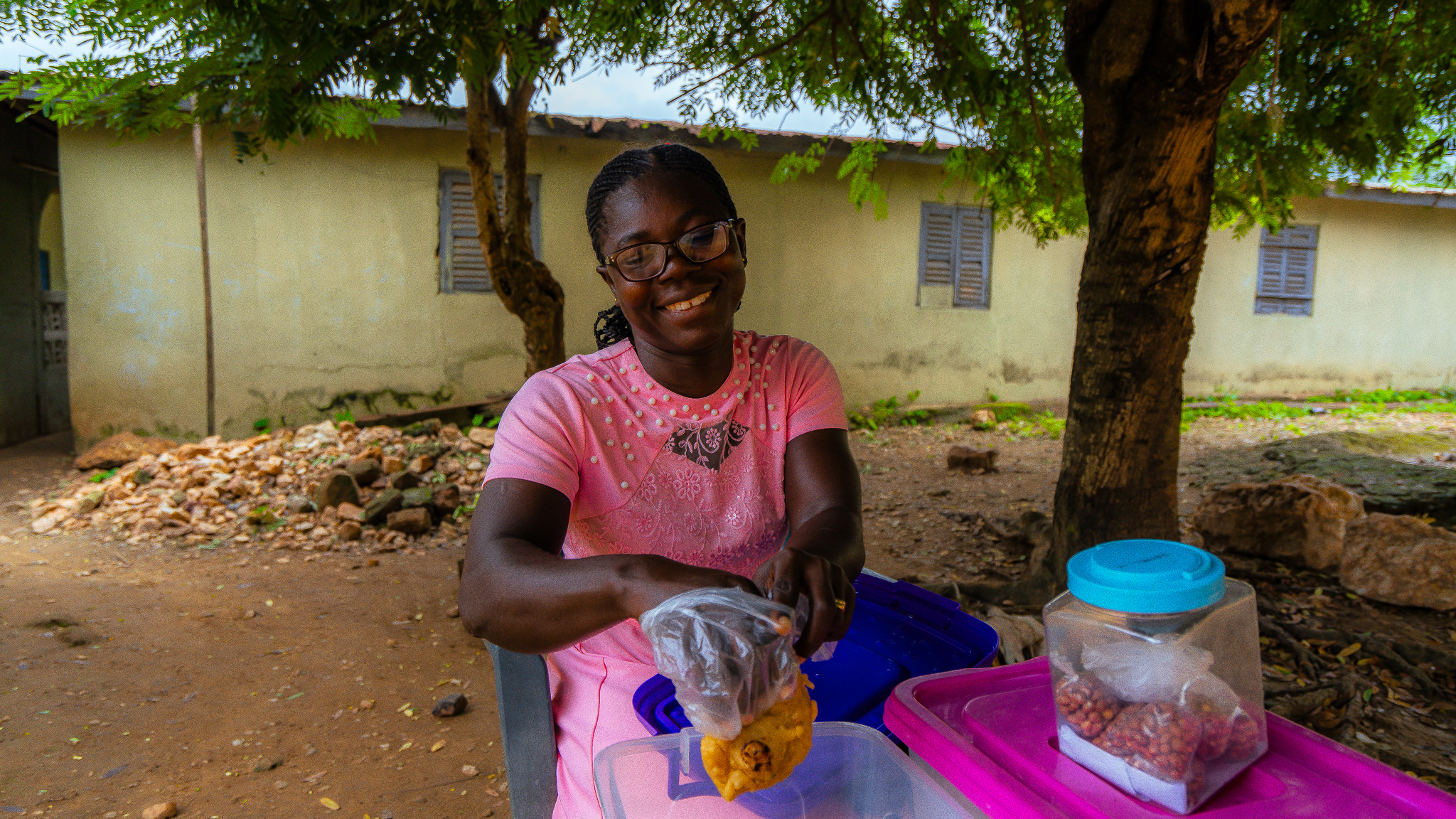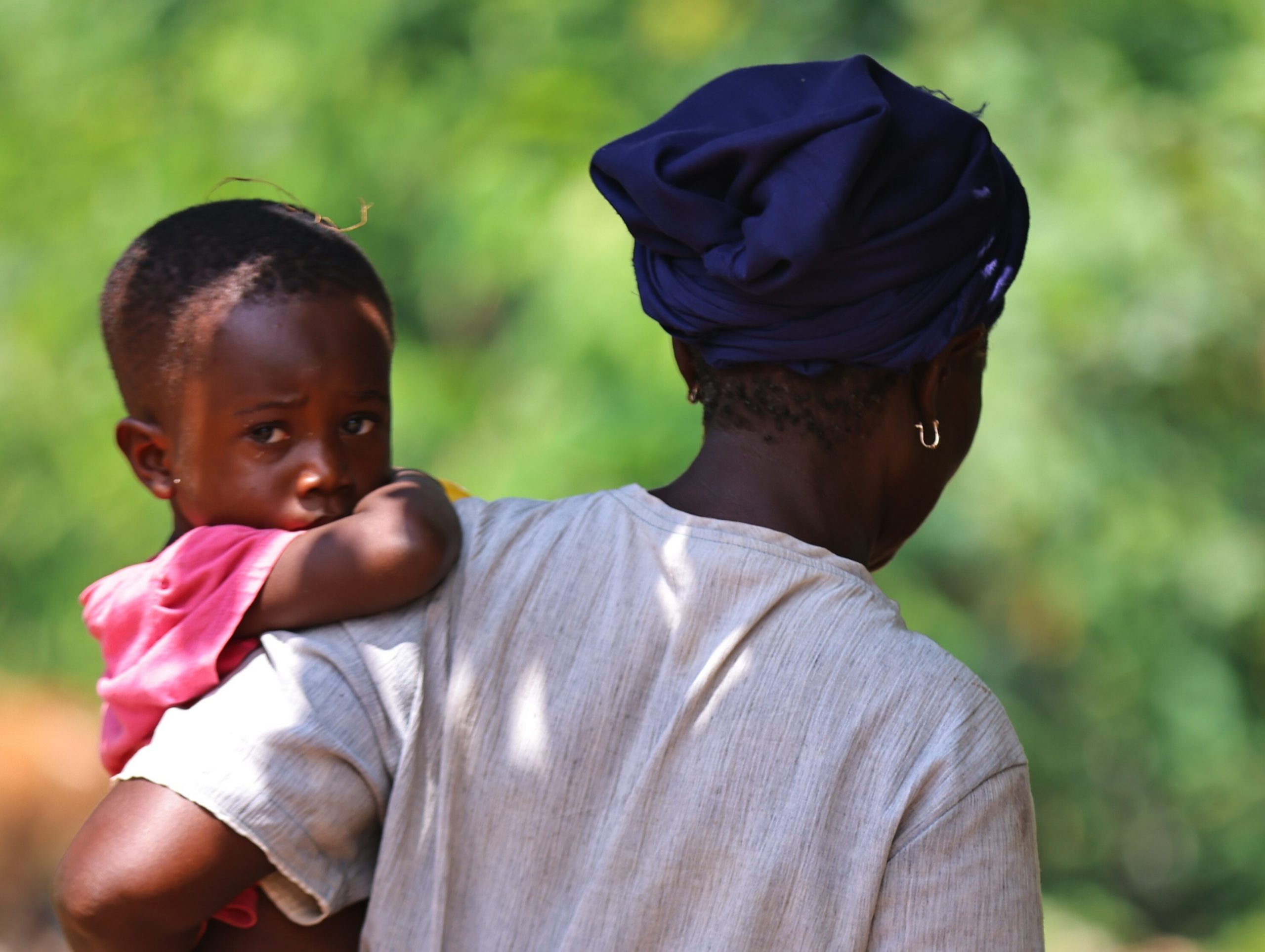Clear Vision, Growing Business: Mary’s Story

For the past decade, 39-year-old Mary Darko from Densuso Aboasa, Ghana, has juggled three jobs. She tends her cocoa farm, sells cooked food in her community, and makes soap for the local market. Each of these livelihoods depends on clear vision and steady hands.
But recently, Mary began to struggle. She found herself holding things at arm’s length just to read, squinting until her eyes watered. Threading a needle, once so easy, became nearly impossible, and the small signs of crop disease often escaped her notice.
“I’ve been having trouble seeing things up close,” Mary explains. “My eyes often get itchy and watery, which makes everything harder. Even simple sewing tasks or reading labels take much longer than before.”
Mary didn’t know she was experiencing presbyopia, a natural, age-related condition where the eyes slowly lose the ability to focus on nearby objects. It’s the reason so many people suddenly need reading glasses around age 40, and it affects more than 800 million people worldwide.
For Mary, who runs multiple small businesses alongside her cocoa farm, clear vision isn’t a luxury; it’s essential. When vision problems slow her down, her income and family both feel the impact. But in rural Ghana, where clinics are far away and special care is costly, eye health rarely gets addressed.
That’s why Elucid organizes mobile eye clinics in cocoa-growing communities as part of its ongoing collaboration with Tony’s Open Chain. At one of these clinics, Mary received a simple vision screening – and, thanks to RestoringVision’s support, a free pair of reading glasses.
The change was immediate. “Since I got my glasses, I can thread needles again without any trouble,” Mary says with relief. “Whether I’m on the farm or reading, I can see clearly. It has really helped me become more productive at work.” She has even returned to reading her Bible at church, something she had quietly missed.
For Mary, those glasses restored more than her sight. They restored independence, confidence, and the ability to provide for her family. And for her community, they show how bringing eye care directly to farming households can turn what seems like a small intervention into a lasting opportunity.





1 Comment